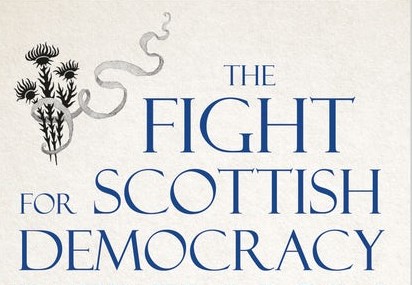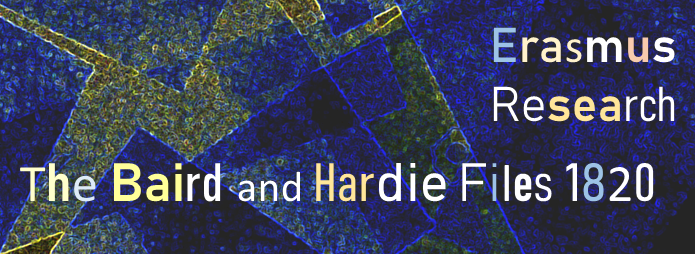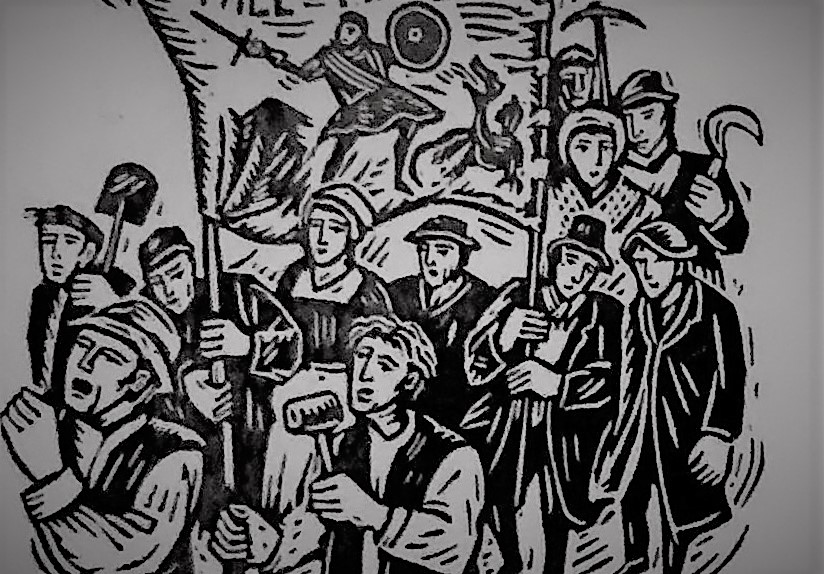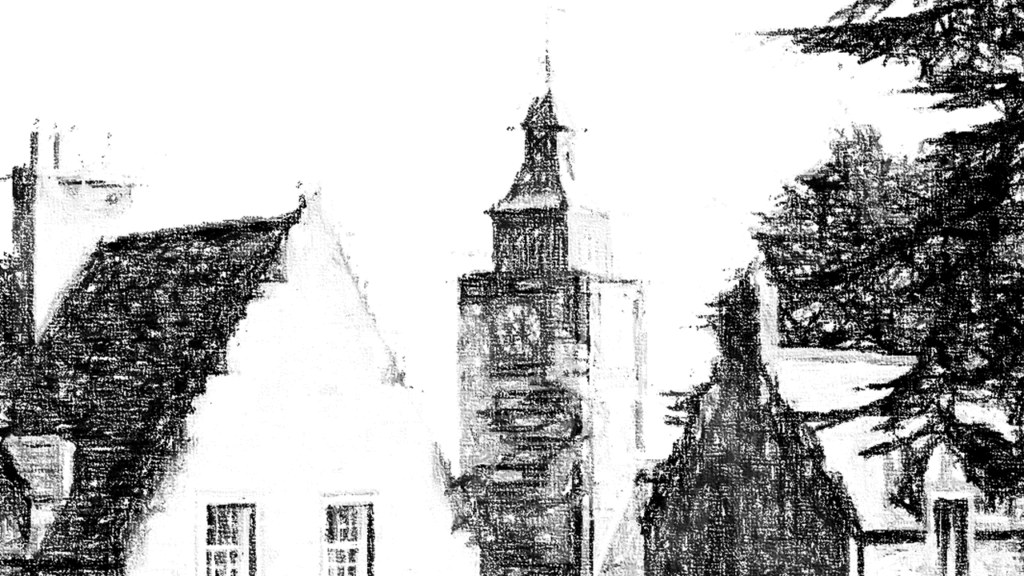
This is the second section of Chapter XIII of the serialisation, the wording reproduced exactly as it appeared in the Stirling Sentinel, on Tuesday 7th May 1889.
Stirling Castle, 10th August, 1820
My Dear Grandfather, – I received a letter from you of date 10th June, which I should have answered before this time. In it, you expressed your deep concern for me, in my then unhappy state, and I do not hesitate to say that you will be a great deal more so now, when you have heard the result of my unfortunate affair; but there is no help for it now, and therefore, it becomes us to submit to the will of God. Permit me, therefore, to lay before you a few reflections on this most important point, viz., our submission to the will of Providence, and although I am but a young man and have had but little experience in this world, at least compared with you, I hope you will excuse my presumption for doing so. You have seen much of the vicissitudes of life, you have seen your wife, sons, and daughters, and other relations and acquaintances, some of them drop off like the ripe leaf in autumn, others as it were, by a sudden gust of wind, blown from the tree before they arrived at maturity, nay, some of them in the very bud. You see what a wide contrast is between you and me, and to all human appearances I shall be away before you. There is nothing, we are more apt to commit errors, than by a mistaken view of the dispensation of Providence. We are ever ready to reflect upon casualties and overlook the hand from whence all things flow. Are we not explicitly told that the very hairs of our head are numbered, and that not even a sparrow falleth to the ground without the knowledge of the all-ruling Providence? He does afflict the children of men without cause, which plainly implies that undoubtedly He purposeth some good end by so doing; and at all events, who dare call Him in question and say – What doest Thou? And in my opinion, he who acts contrary to this commits an aggravated sin, and desperately tries to retain what God is determined to remove. Undoubtedly it becomes us to pray for the objects of our desires, but to murmur and repine is entirely out of the question. David fasted and prayed while his child was alive, while there was hope; but after he died, he arose and ate bread, and said to his astonished servants, who were no doubt surprised at his behaviour – “But now he is dead, wherefor should I fast? Can I bring him back again? I shall go to him, but he shall not return to me.” See 2 Samuel, 12th chapter, from the 20th to the 24th verses. Dear Grandfather, as I am standing on the verge of eternity, and, according to the course of nature, you cannot be long in this land of misery, and as we are all poor, needy, sinful creatures, utterly unable by any means whatever, to extricate ourselves from the gulf of sin and misery into which we have fallen, we must throw ourselves upon Him, who is both able and willing to give us a remission, not only of those sins brought upon us by our first parents, but also of those we have brought upon ourselves. My earnest prayer is that He may put upon us His unspotted robe of righteousness, which he has purified and cleansed with His precious and innocent blood, and fir us for that society whose is perfect love. I hope my dear and aged grandfather, you will excuse me for having the audacity of laying these things before you; I am well aware that you are not ignorant of these matters, but upon consideration of the situation that I am placed in, I trust you will excuse me for reminding you of them. I have been visited by several clergymen, with whom I have been well pleased. My friends from Cumbernauld recommended Mr Heugh (the Burgher minister of this town) to me, and at my request, and the General’s permission, he is to attend me this short time I remain here on earth, but I freely admit any other rev. Gentlemen, who give me the honour of attendance. My health continues, with a calm and tranquil mind, and I trust God, who has been so kind to me, will continue with me till the end. I hope you will send for my distressed mother, and give her all the consolation in your power. Give my kind love to my uncles and aunts, and all other enquiring friends. I will add no more at present, but remain your loving grandson,
ANDW. HARDIE
Mr Andrew Hardie, 73 Drygate, Glasgow.

Two days later, Hardie wrote this letter to an old friend, Mr W. Ewing, of Glasgow: –
Stirling Castle, August 12, 1820
DEAR SIR, – I had a visit this day of my mother and brother, and my friend Helen, and was happy to see them, and as I understand since they left me they are not to leave Stirling until tomorrow, I shall embrace the opportunity of transmitting a few lines to you by them. They let me understand that you and another gentleman had been in this town wishing to give me a visit. I am truly sorry you were not admitted; if you had sent in a card to me giving me notice, I would have applied to the General to get permission for you to come in, and I have not the least doubt but that he would have granted it, as he gives us every indulgence that is in his power. I have little new to give you, as you will have heard all the particulars of my trial, &c, long before this time and that more explicitly than I can give it you. I shall therefore sum up the whole in a few words: If I have done wrong certainly I ought to suffer; and if not, my blood will revolve on their own heads. My trial and sufferings will go through another investigation before a tribunal ten thousand times more terrible than that before I lately stood. You would likewise hear of the manner that my poor frail body is to be mangled, viz. to be hanged, beheaded and quartered; but this is not all – that will not suffice – my remains are to be left to the disposal of his Majesty. But what matter is all this to me, although they would take my bones and grind them into powder, there shall not be a particle lost, but shall be gathered together again – but this is not a pleasant subject, and of little importance. I shall therefore leave it and give you a short account of the state of my health and mind since I was taken prisoner. After I had remained a few days in this Castle, I was removed to Edinburgh and out in the new jail, where I remained about a week, amongst a horrid din of rattling chains and desperate felons. I did not like this very well, but we were taken to the Castle, where I remained about ten weeks in solitary confinement; but I was very well used, and had a fine large well-lighted room, with a sufficient allowance of coals for a fire. I was very dull, being naturally of a cheerful temper and never used with confinement nor the want of company, but I have been much better since I came to this place. I have stood it through with uncommon firmness; it hath pleased God to put a spirit within me that soars above all their devices against me, and I trust it will continue so to the end. I used to admire (and do so yet) the noble manner that Socrates ended his most excellent and useful life; and although it does not become me, or any person, to mix heathen virtues with Christian fortitude, I think it below the character of a Christian, as well as a heathen, to shrink beneath the stroke of the oppressor. Well did that great man know he was wronged, and suffering innocently, yet he submitted with truly becoming bravery. But, my dear friend, I hope you will not think, although I have taken notice of this, that it is from his example I take my firmness; it is not so, but by earnest supplications at the throne of grace, my mind is brought to a state which, I believe surprises all who visit me. I am waiting with great patience until my time comes. The loss of my life gives me very little concern. I am relying on the merits of a blessed Saviour for a happy reception, and my last hour’s labour in his vineyard is drawing near a close. My sun is nigh set, but I trust it will rise again to set no more. I would write you a deal more particularly, but I have learned a little time ago that Helen is not away, so I have written this in a great hurry and without study; therefore I hope that you will excuse any inaccuracies that are in it. I have to request that you will not let any person see this letter, but those that you can put confidence in; and as some things I have already said have reached the ears of ——, I hope you will keep it as dark as possible till after my decease, and when you write you must never mention the subject this letter contains, as yours will come through their hands, and I intend to get this out by another channel. I hope you will write when this comes to hand, and let me know all particulars. Give my kind compliments to Mr Drew and all other enquiring friends, and also James ——, I don’t mention his surname but it is him that was here with you. Give Mrs Wright my kind compliments, and I wish her much happiness in her change of life. Dear sir, I again request you, as you value me as a friend, to take care to whom you show this letter. I was happy to hear by Helen that your family were well; you may know that I have been a little depressed in mind since I saw her, and sorry to see her so much agitated. – I am sir, your sincere friend and well-wisher,
ANDREW HARDIE
To Mr William Ewing, Glasgow.
P.S. – As I do not know the number of your house, and as I am afraid that the person who takes this out for me may not find Helen, and will be under the necessity of putting it into the Post Office, I have therefore addressed it to Mr Cooper. You may let my friend know that while I was writing this I have got notice that my petition is sent away to London by Mr Jeffrey, and that he has found some fault with the Lord President’s address to the jury, and I know very well what it is but I have no room to insert it, so I will let you know at some other period. – I am, yours &c., A.H
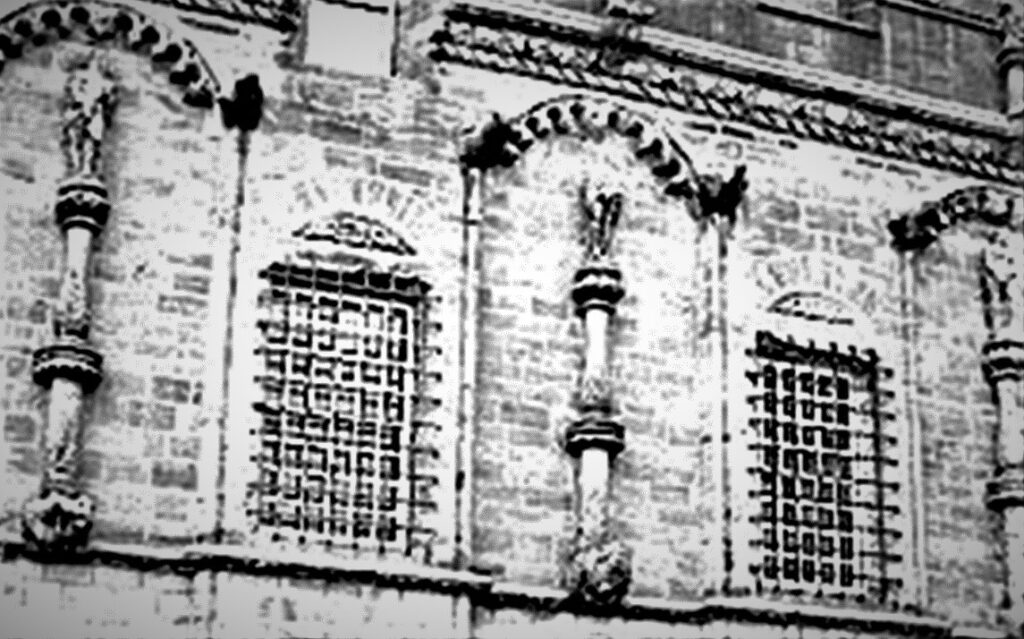
To be continued…


